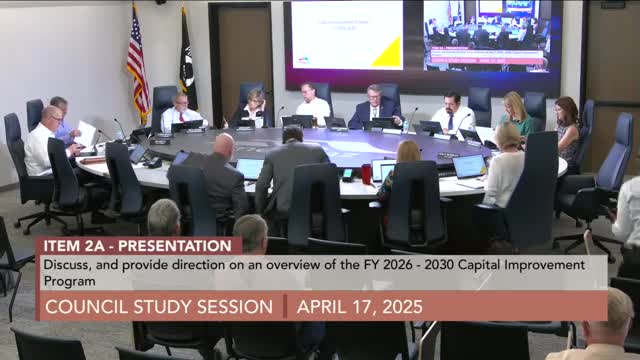Article not found
This article is no longer available. But don't worry—we've gathered other articles that discuss the same topic.
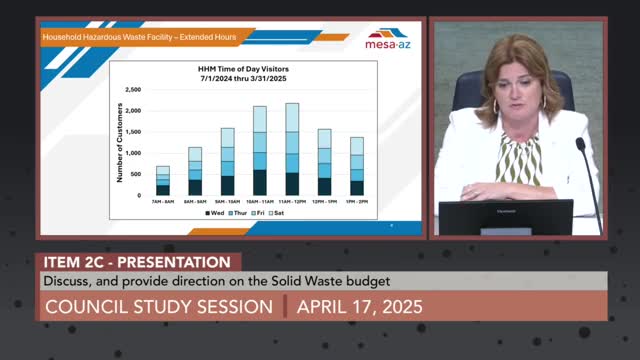
Solid Waste plans expansion of household hazardous-waste hours, advances MRF design and deploys in-truck tablets
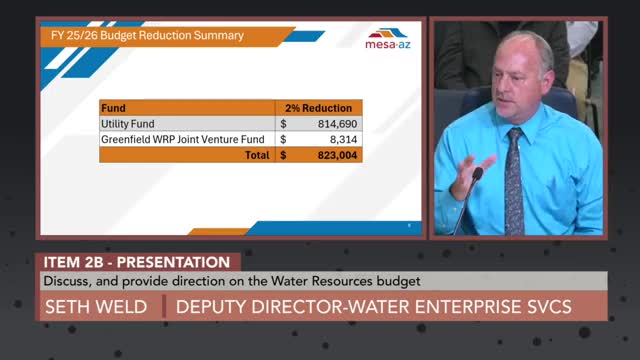
Mesa staff present budget approach; council questions 2% reduction target and multi-year reserves
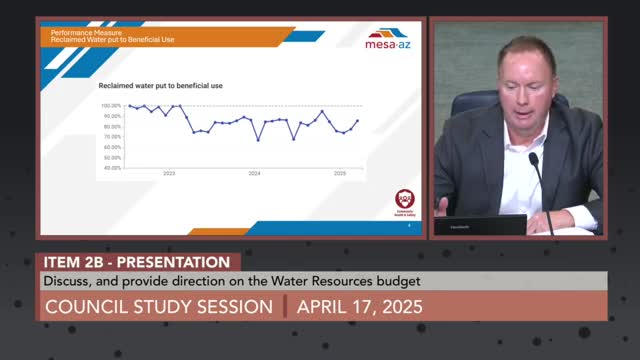
Mesa reviews water budget, highlights reclaimed-water exchanges and Bartlett Dam feasibility work
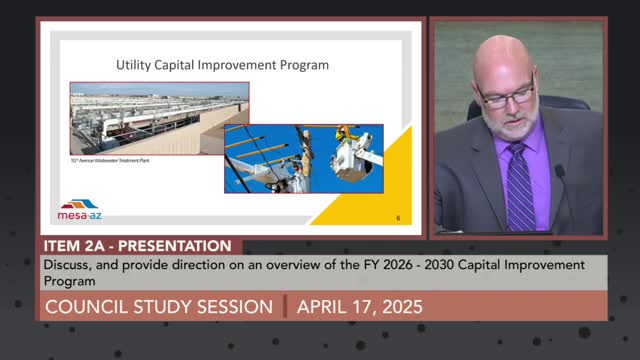
Mesa staff outline utility capital projects: water, energy and smart-metering work highlighted
